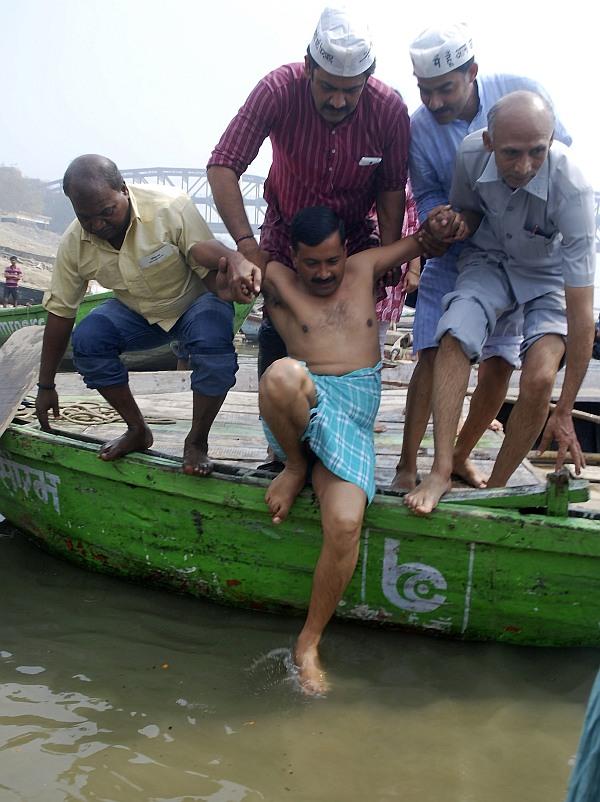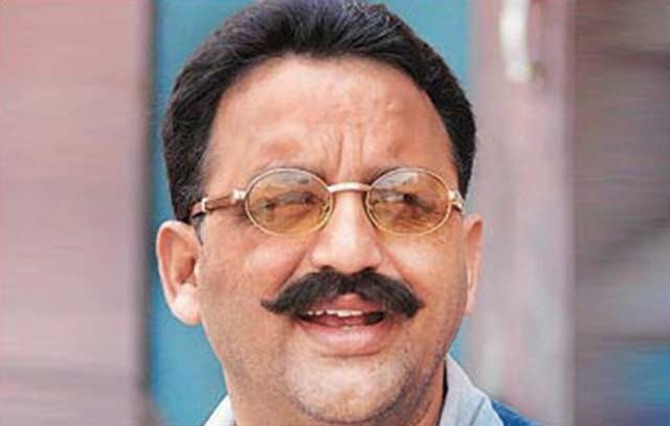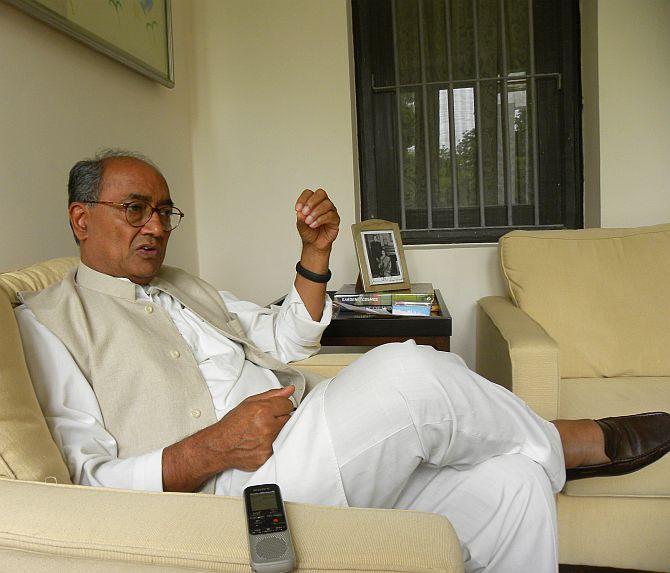 | « Back to article | Print this article |
Why Kejriwal could drown in Varanasi
The Aam Aadmi Party will find it difficult to repeat its Delhi success in Uttar Pradesh as it will have the Bahujan Samaj Party to contend with, says Archis Mohan
Ali, former wrestler and lieutenant of Quami Ekta Dal leader Mukhtar Ansari, doesn’t divulge much during a meandering chat about the voting pattern of Muslims in Varanasi.
But mention Aam Aadmi Party leader Arvind Kejriwal and he breaks his reserve.
“Kejriwal has won respect in my community. It was courageous of him to challenge Narendra Modi in his own den in Gujarat,” he says, while watching sundry television reporters interviewing people at Assi Ghat, the cleanest and the most spacious of the 100-odd ghats in Varanasi.
Muslims comprise a significant 20 per cent of the 1,500,000-strong electorate here.
Their numbers match those of the other two major voting blocs -- the Kurmis and the Brahmins. The Rajbhars (landless cultivators), Dalits, Thakurs, Yadavs, etc, account for the rest.
Kejriwal’s popularity among Muslims, it is assumed, is something that will fetch him substantial votes.
Click on NEXT to read further...
Why Kejriwal could drown in Varanasi
Unfortunately for the AAP chief, the imposing Ansari -- Robin Hood to some, mafia don to others and currently in jail on murder charges -- stands between Kejriwal and Muslim votes.
Also, there is the Mayawati (Bahujan Samaj Party chief) factor. Here, the AAP will find it difficult to repeat its stellar show in the Delhi assembly elections, in which it snatched the Dalit votes from the BSP.
In a nutshell, Kejriwal’s electoral fortunes in Varanasi look bleak.
“He is inconsequential here. The AAP has no base here. Muslims won’t vote for an outsider,” says political worker Aflatoon Desai.
The buzz was Ansari’s wife might contest the elections.
But now, Ansari, 53, is said to have decided to challenge the Bharatiya Janata Party’s prime ministerial candidate, Modi, from within the walls of Agra jail, where he is lodged.
In 2009, Ansari had contested against then BJP candidate Murli Manohar Joshi, losing by a mere 17,000 votes.
Click on NEXT to read further...
Why Kejriwal could drown in Varanasi
A few Muslims such as young Mohammed Lari, another fan of Kejriwal’s, concede that Ansari, a sitting member of legislative assembly from Mou, might make Modi’s victory easier.
“Ansari is indeed a polarising figure,” says Lari, Ansari’s political associate.
Locals say Ansari is unlikely to opt out, as he sees an opportunity to defeat Modi through a consolidated secular vote base.
For Ansari and his brothers, also members of the Quami Ekta Dal, the elections are important to perpetuate their influence in the area. Conspiracy theories abound the BJP might prefer Ansari to contest from here.
“Ansari and his brothers are the ones poor Muslims and Dalits turn to in times of trouble; Kejriwal is an outsider. It is an easy choice between Ansari and Kejriwal,” says retired journalist Yogendra Sharma.
Click on NEXT to read further...
Why Kejriwal could drown in Varanasi
At Pappu tea stall, the city’s intellectual hub, where intellectuals -- Banaras Hindu University professors, advocates and journalists -- congregate every evening for their own Chai pe Charcha (conversations over tea), most agree Kejriwal is the only one to question Modi’s development model with credibility.
“In these elections, Kejriwal’s influence is beyond the number of votes he gets. He has taken Modi head-on and challenged his propaganda. This has given courage to many who don’t agree with Modi’s model,” says Siddiq Hassan.
He, however, agrees with the consensus at the tea stall that electorally, Kejriwal’s chances are nil.
The BJP, meanwhile, has gone about knitting caste alliances efficiently, ensuring Modi’s prospects here aren’t hit.
The Kurmis, who, in eastern Uttar Pradesh support the Apna Dal (which Sone Lal Patel launched in the mid-90s and his daughter Anupriya now heads), are likely to vote for the BJP.
On Monday, Anupriya had entered into a seat-sharing alliance with the BJP. The Rajbhars have their own Janwadi Party, which is likely to support the BJP. As such, the national party’s upper and lower caste alliances are impregnable.
Click on NEXT to read further...
Why Kejriwal could drown in Varanasi
Political observers believe the contest might turn interesting in case a Congress heavyweight such as Digvijaya Singh decides to contest from here.
“The party’s original support base -- the Muslims, the Dalits and the Brahmins -- which is a tad upset with the BJP, might then rally behind the Congress and make it really tough for Modi,” says advocate and Congress worker Veerendra Srivastava.
That might sound far-fetched, considering that Varanasi has been a BJP seat for about two decades; even in the midst of the Samajwadi Party wave in 2012, the party won all three assembly constituencies here -- Varanasi North, South and Cantonment.
The region also has two rural assembly constituencies.
What looks somewhat certain is this time, the buzz around the Lok Sabha Polls might improve the voter turnout here. In 2009, a mere 42 per cent of the electorate here had come out to vote.





